The Fight to Stop Face Recognition Technology
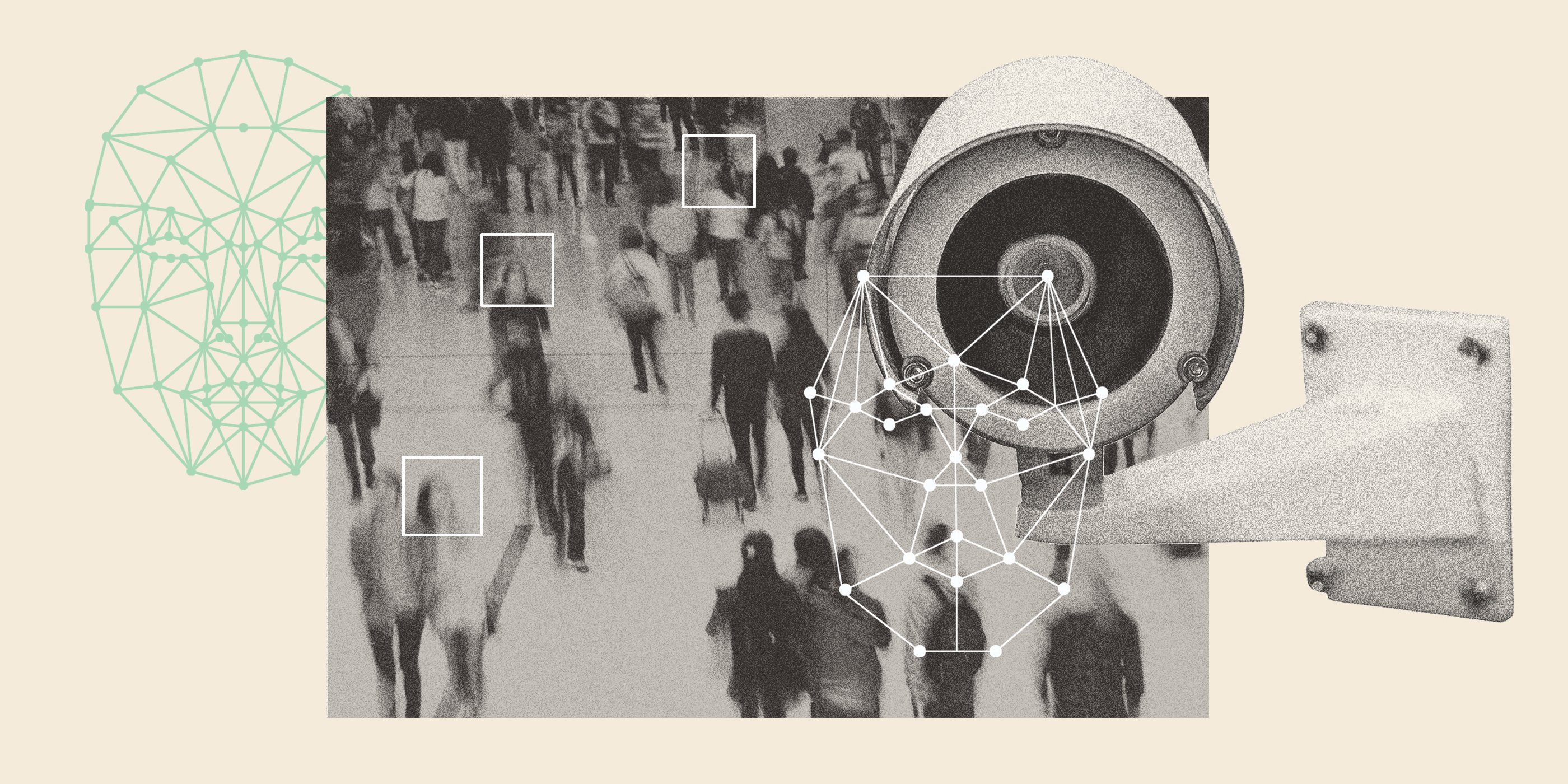
The Fight to Stop Face Recognition Technology
Face recognition surveillance presents an unprecedented threat to our privacy and civil liberties. It gives governments, companies, and individuals the power to spy on us wherever we go — tracking our faces at protests, political rallies, places of worship, and more. The ACLU is taking to the courts, streets, legislatures, city councils, and even corporate boardrooms to defend our rights against the growing dangers of this unregulated surveillance technology.
Last updated on June 7, 2023
Arrested Because the 'Computer Got it Wrong'
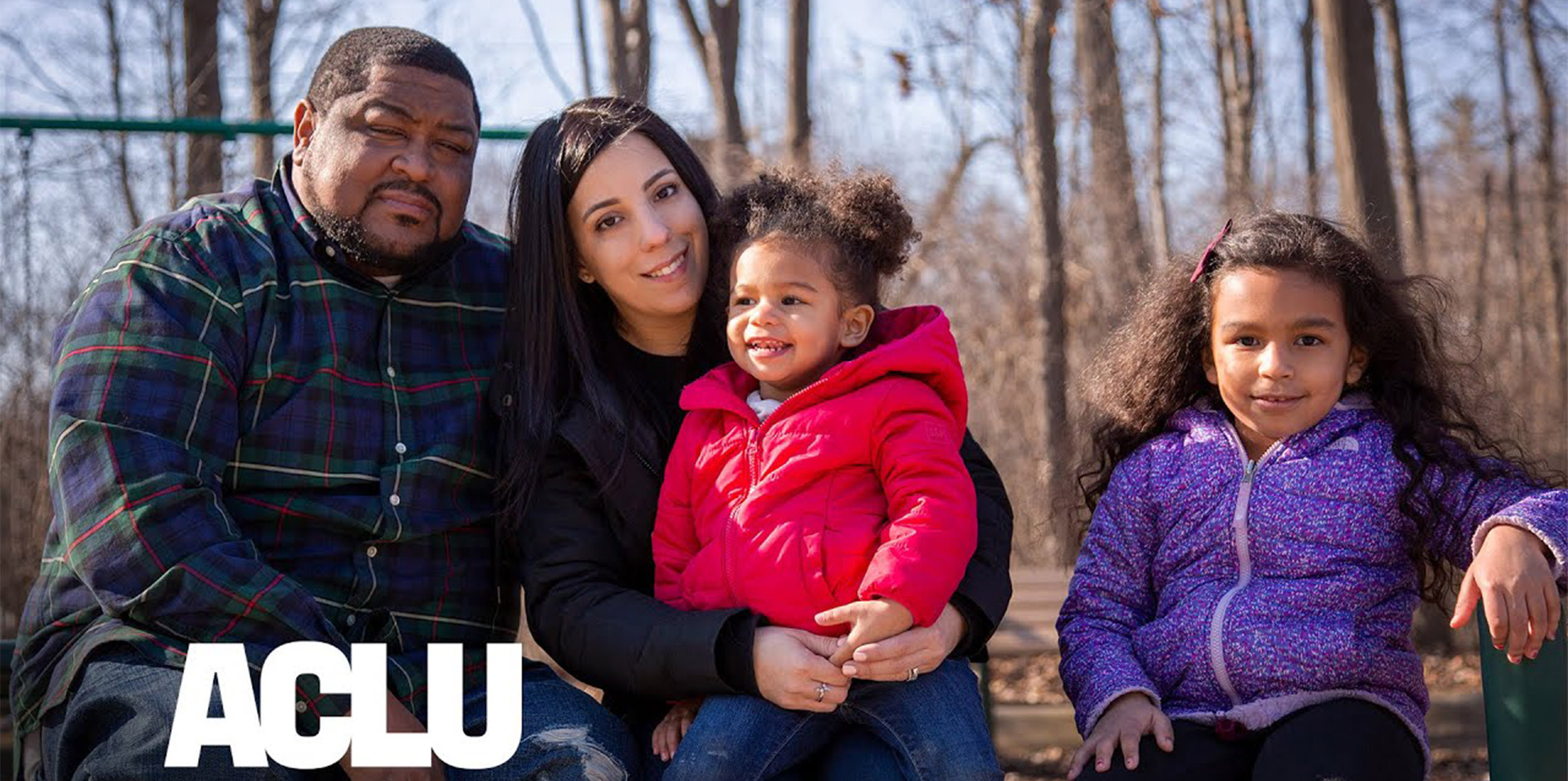
Robert Williams, a Black man living in Michigan, was handcuffed and hauled away by Detroit police in front of his wife and young girls because of a false face recognition match. Even though he was locked up for 30 hours despite being innocent, he considers himself lucky. As a Black man, he knows the consequences of a false match and police arrest could have been deadly.
What You Can Do
Stop Face Surveillance Technologies
Stop Face Surveillance Technologies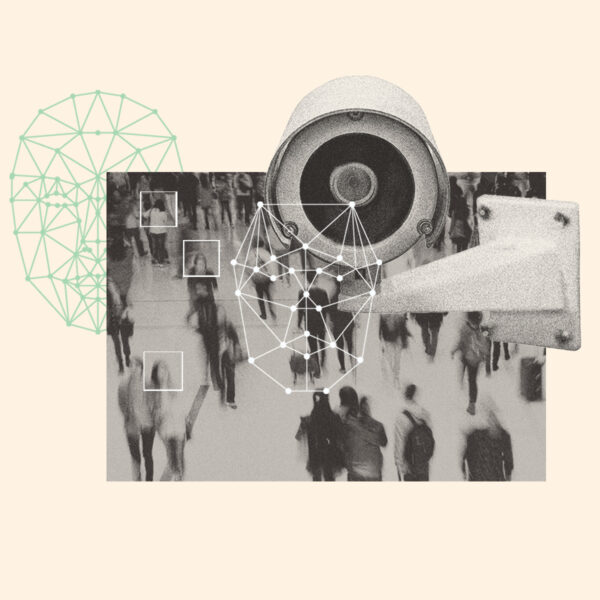
Stop Face Surveillance Technologies
Stop Face Surveillance TechnologiesHere’s How We’re Fighting Back
Legal Actions
We’re in courtrooms across the country to defend our privacy rights against the growing threat of face surveillance. A part of what makes face recognition so dangerous is that law enforcement agencies are often using the technology in secret and without any democratic oversight. There can be no accountability if there is no transparency.
We’re suing the FBI, DEA, ICE, and CBP to learn more about how they are using face recognition and what safeguards, if any, are in place to prevent rights violations and abuses. These agencies have abused or even continue to abuse surveillance authorities to spy on protesters, political opponents, Black and Brown communities, and more. Adding face recognition to their arsenal raises serious cause for alarm.
We’re also in court in Illinois challenging Clearview AI’s privacy-destroying face recognition practices. Clearview gained national attention after the New York Times revealed the company has been secretly capturing untold numbers of biometric identifiers for purposes of surveillance and tracking, without notice to the individuals affected, much less their consent. The company’s actions embody the nightmare scenario we’ve long warned of, and has accomplished what many companies — such as Google — refused to try due to ethical concerns. Our lawsuit, filed on behalf of groups representing survivors of domestic violence and sexual assault, undocumented immigrants, and others, argues that Clearview AI violated — and continues to violate — the privacy rights of Illinois residents under the Illinois Biometric Information Privacy Act.
We have filed friend-of-the-court briefs in New Jersey and Florida challenging police and prosecutors’ refusal to provide adequate information to defendants in criminal cases about the face recognition systems used to identify them. In the New Jersey case, the court ruled that prosecutors’ failure to turn over detailed information about use of face recognition technology violates defendants’ constitutional rights. This important opinion promises to help reduce the secrecy around face surveillance technology that has facilitated violations of people’s constitutional rights and prevented courts from providing oversight.
Select from menu
Legal Actions
We’re in courtrooms across the country to defend our privacy rights against the growing threat of face surveillance. A part of what makes face recognition so dangerous is that law enforcement agencies are often using the technology in secret and without any democratic oversight. There can be no accountability if there is no transparency.
We’re suing the FBI, DEA, ICE, and CBP to learn more about how they are using face recognition and what safeguards, if any, are in place to prevent rights violations and abuses. These agencies have abused or even continue to abuse surveillance authorities to spy on protesters, political opponents, Black and Brown communities, and more. Adding face recognition to their arsenal raises serious cause for alarm.
We’re also in court in Illinois challenging Clearview AI’s privacy-destroying face recognition practices. Clearview gained national attention after the New York Times revealed the company has been secretly capturing untold numbers of biometric identifiers for purposes of surveillance and tracking, without notice to the individuals affected, much less their consent. The company’s actions embody the nightmare scenario we’ve long warned of, and has accomplished what many companies — such as Google — refused to try due to ethical concerns. Our lawsuit, filed on behalf of groups representing survivors of domestic violence and sexual assault, undocumented immigrants, and others, argues that Clearview AI violated — and continues to violate — the privacy rights of Illinois residents under the Illinois Biometric Information Privacy Act.
We have filed friend-of-the-court briefs in New Jersey and Florida challenging police and prosecutors’ refusal to provide adequate information to defendants in criminal cases about the face recognition systems used to identify them. In the New Jersey case, the court ruled that prosecutors’ failure to turn over detailed information about use of face recognition technology violates defendants’ constitutional rights. This important opinion promises to help reduce the secrecy around face surveillance technology that has facilitated violations of people’s constitutional rights and prevented courts from providing oversight.
Legislative Actions
Corporate Advocacy
Featured Stories
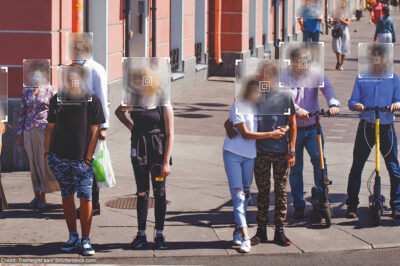
Biden Must Halt Face Recognition Technology to Advance Racial Equity
Face recognition is a threat to not only our constitutional rights, but to people of color and other marginalized groups who are more likely to be misidentified — and bear the consequences.
Biden Must Halt Face Recognition Technology to Advance Racial Equity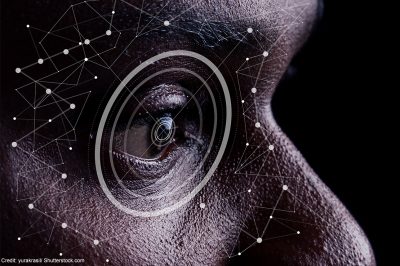
The Computer Got it Wrong: Why We’re Taking the Detroit Police to Court Over a Faulty Face Recognition 'Match'
Face recognition technology turns everybody into a suspect and threatens our civil rights.
The Computer Got it Wrong: Why We’re Taking the Detroit Police to Court Over a Faulty Face Recognition 'Match'
When We Fight, We Win: Victories in the Fight Against Face Surveillance Keep Piling Up
The extension of Amazon's moratorium is a major win for racial justice, curbing police powers, and privacy — but we won’t stop fighting until all people are protected.
When We Fight, We Win: Victories in the Fight Against Face Surveillance Keep Piling UpOur work to stop the spread of face surveillance
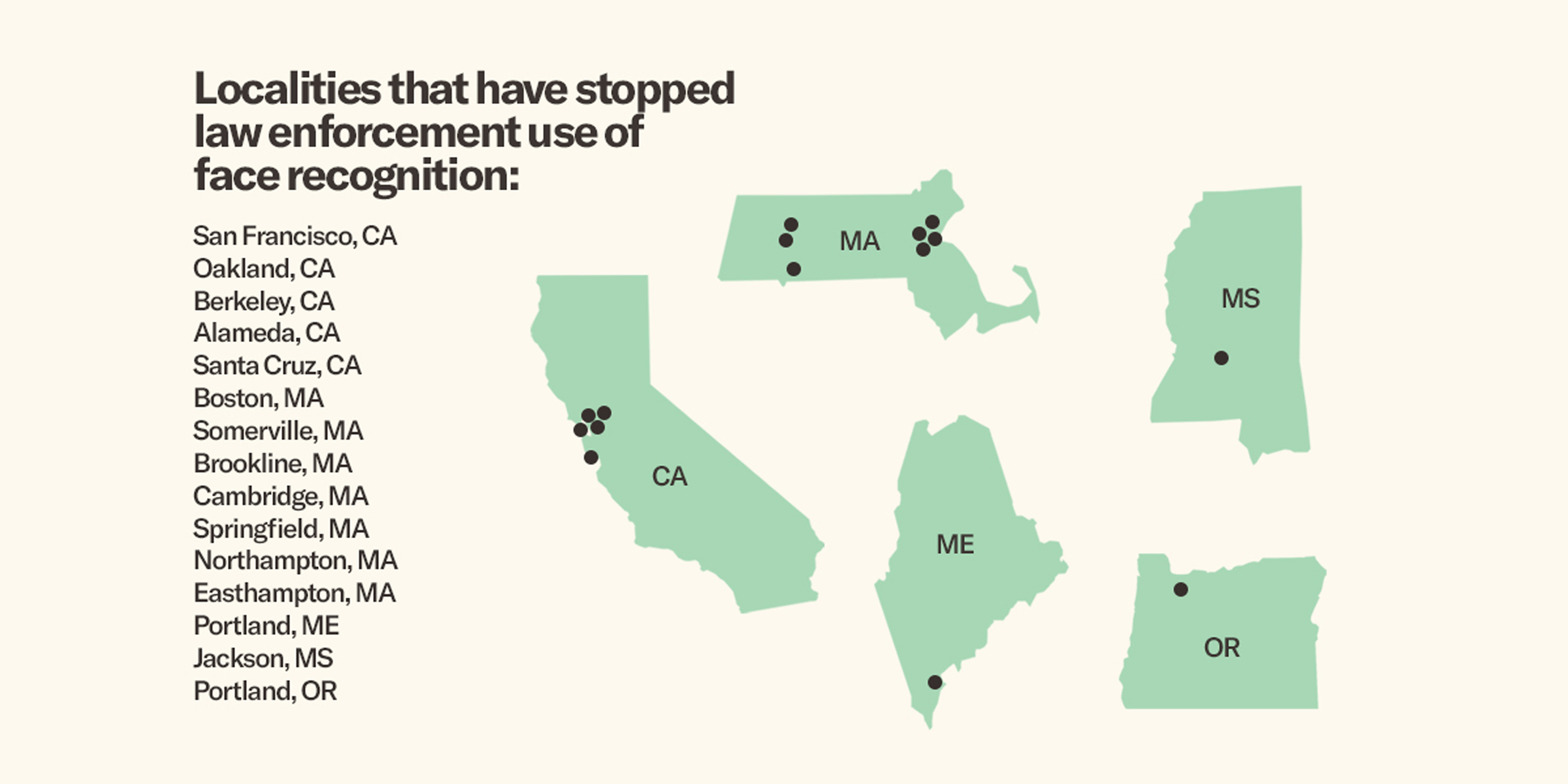
We’re leading the fight in legislatures nationwide to stop law enforcement use of face recognition.
Which companies sell face surveillance to police
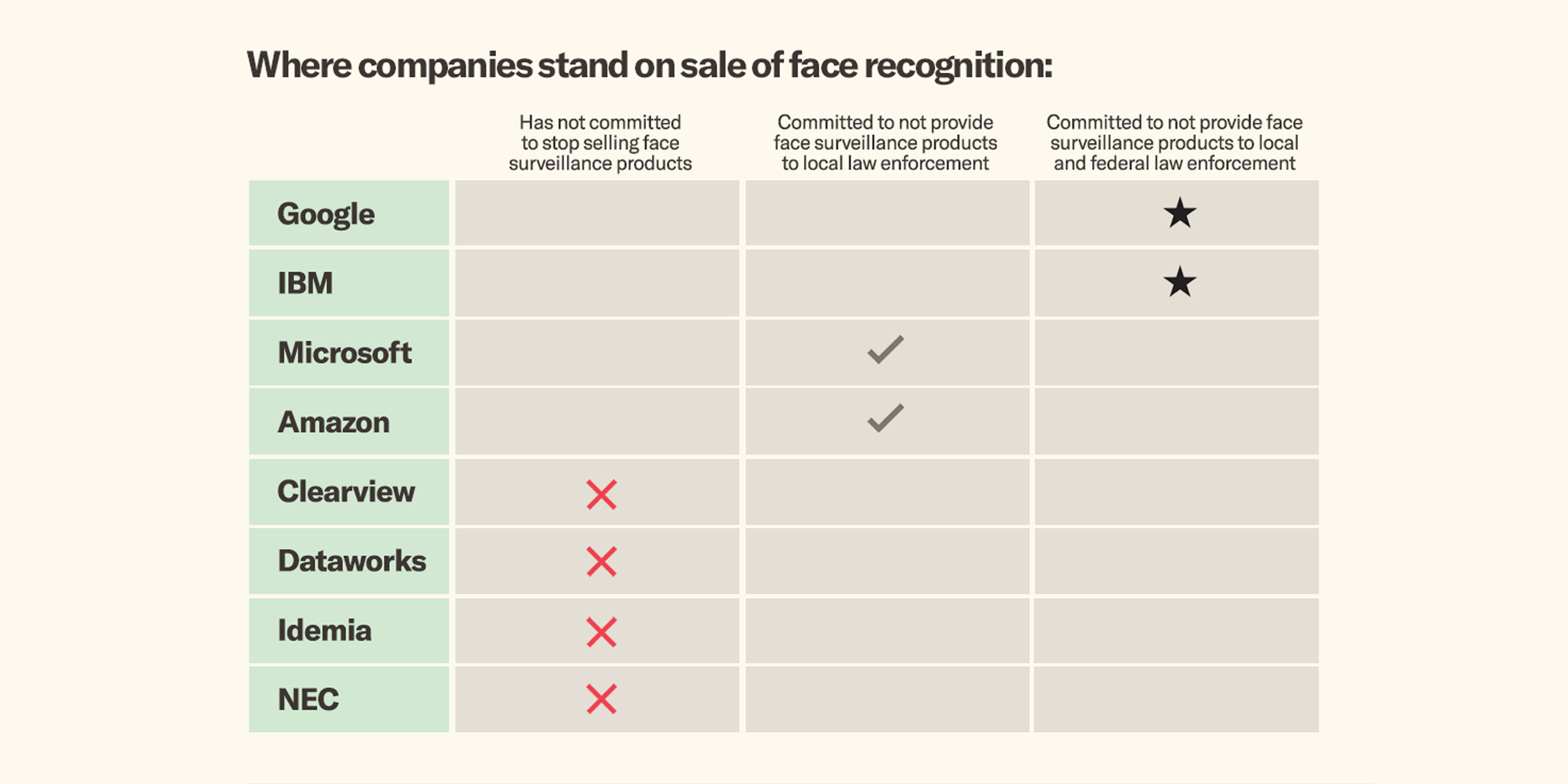
Stay informed
Sign up to be the first to hear about how to take action.
By completing this form, I agree to receive occasional emails per the terms of the ACLU's privacy statement.
By completing this form, I agree to receive occasional emails per the terms of the ACLU's privacy statement.